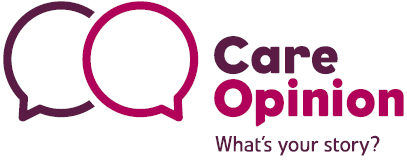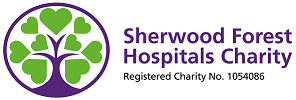Orthotics
Here at Sherwood Forest Hospitals, our dedicated team of Orthotists, Technicians and Coordinators work as a team to provide the optimum support to aid day-to-day living, via braces and devices.
As a part of Therapy services, we provide specialist assessments and offer a range of treatments for many conditions and musculoskeletal (MSK) issues.
Orthotists are autonomous Allied Health Practitioners (registered with the Health Care Professions Council) who assess static and gait alignment to utilise engineering solutions for patients with problems of the neuro, muscular and skeletal systems.
Orthotists are extensively trained at undergraduate level in mechanics, bio-mechanics, and material science along with anatomy, physiology and pathophysiology.
Their qualifications make them competent to design and provide orthoses that modify the structural or functional characteristics of the patients' neuro-muscular and skeletal systems enabling patients to mobilise, eliminate gait deviations, reduce falls, reduce pain, prevent, and facilitate healing of ulcers.
An Orthosis, or Orthoses, are medical devices that are applied to the body, to address problems of the neuro, muscular and skeletal systems. The correct supply of an Orthotic devices can reduce pain, control alignment, and improve people's quality of life.
You will be seen by one of our qualified clinicians to assess your orthotic needs.
Because the clinician will need to examine and expose the area being treated, please wear appropriate clothing, underwear and footwear.
The clinician may also be of the opposite sex. Should you be uncomfortable with this and would like to be accompanied, please bring one person with you. If this isn’t possible, we can arrange a chaperone for you during your appointment. Please contact us to arrange this.
Please be aware that our clinicians will not see any young person under the age of sixteen without a chaperone. Please attend with a parent or guardian.
Please bring with you:
- A second pair of footwear if you been referred for a raise or footwear adaptations.
- Any Orthosis you may have been supplied with previously.
- Someone who can support you if you have difficult with communicating.
Most orthoses need to be specially ordered or made for you. You will need to attend for a further appointment to be supplied. The time between each appointment varies depending on the type of support.
A few devices may be supplied from stock and issued on the day.
Once at the hospital, there is a buggy service provided by volunteers who bring patients form the front entrance to the clinic.
If you have difficulty getting to the hospital and cannot be brought by someone who can support you, you may be eligible for hospital transport.
We recommend that all patients attending by hospital transport request a morning appointment. You are likely to be collected from clinic sooner to return home.
Please also bring all essential medication as there may be delays in returning home.
We are sorry but we are not able to offer home visits. However, in some circumstances we may be able to provide a video consultation through the NHS application, Attend Anywhere. Please contact the service for more information.
Most of our patients referred to the department will be able to access our service at any point after their initial consultation. This negates the need to seek a new referral from a health professional if there is no change of circumstances. We call this PIFU (Patient Initiated Follow Up) and it allows you to contact the department directly when you need our help.
A new referral will be required for a new un-relating condition. Although this is often inconvenient with established patients, it allows the General Practitioner to revisit the patient’s care and refer to an alternative service if deemed more appropriate.
Many of our custom orthotic devices are made on site by our experienced team of Orthotic Technicians. Including AFOs, Knee Orthoses and CADCAM insoles, this also allows us to offer first class servicing, repairs and adjustments whenever required.
They are incredibly skilled in their profession and ensure only the highest quality devices leave our department to benefit a range of our patients.
Having the workshop on site at King's Mill Hospital ensures a smooth and timely supply from patients' initial assessment dates.
Your care
Lower limb
Insoles are foot orthotics placed in your shoes to support your foot posture and aim to offload or reduce pain. They can be made or selected to fit you as an individual to provide specific treatment for you only.
This insoles information leaflet (opens in new window) is intended as further help to patients who have been supplied with functional, flat bed, or moulded insoles.
Orthotic footwear is provided for a group of patients and to meet their specific needs. Read more on orthotic footwear (opens in new window).
Adaptions are made to your own footwear, if required, to accommodate your feet and will be discussed with your orthotist. Read more on footwear adaptions (opens in new window).
An Ankle Foot Orthotic (AFO) is a close fitting plastic support that goes into the shoe. These leaflets, for both adults and children below, should be used as a general guide along with the specific advice provided by your orthotist/physiotherapist. Read more on:
- Ankle foot orthosis (AFO) splints for children (opens in new window)
- Ankle foot orthosis (AFO) splints for adults (opens in new window).
Gaiters
Leg Gaiters are prescribed to provide a stretch to your lower limbs, as instructed by your Orthotist or Physiotherapist.
Read more on gaiters (opens in new window).
CTEV (talipes)
Talipes, also known as clubfoot, is a condition which effects the lower limbs of some babies. Following treatment in Orthopaedics, the Ponseti method is a usual approach to this development of the foot and ankle. For more information on your baby’s CTEV, read the following leaflets.
- Ponseti method (opens in new window)
- Boots and bars information for parents (opens in new window)
- Abduction Dorsiflexion Mechanism (ADM) night brace fitting guide (opens in new window).
Boxia brace
Boxia brace support is designed to aid your mobility, reducing the possibility of tripping and falling and making your walking more energy efficient. It has been prescribed to you because the muscles in your leg are not working well enough to lift your foot up. This brace has been fitted for your use only. Do not adjust it or fit it to anyone else.
Read more on boxia braces (opens in new window).
For information on general knee support braces such as, Osteoarthritis and stability braces, please read our knee brace information leaflet (opens in new window).
PCL or ACL brace
You will have been provided with a PCL or ACL offloading knee brace following trauma or reconstruction surgery.
This will be set up by a trained professional and will provide advice and rehabilitation at fitting. If you require assistance with your brace please contact Clinic 2.
Range of Motion (ROM) Brace
If you have been provided a ROM brace this will be adjusted and fitted by an Orthotist or Physio, and you should follow the wearing regime provided at fitting.
Read more on Range of Motion braces (opens in new window).
Knee ankle foot orthoses (KAFO)
If you have been prescribed a KAFO it will be manufactured specifically to your needs. This may include providing stability to your knee and assisting mobility.
Read more on KAFO (opens in new window).
Upper limb
Please return back to the provider of your hand and wrist braces for more information.
If your brace was issued by the orthotic service, please call the reception on 01623 676163 during opening hours.
Please return back to the provider of your elbow braces for more information.
If your brace was issued by the orthotic service, please call the reception on 01623 676163 during opening hours.
Omo Neurexa shoulder orthosis is a shoulder subluxation support. One may have been supplied to you on the ward or as an outpatient.
Read more on Omo Neurexa shoulder braces (opens in new window).
Patient Experience Team (PET)
Our Patient Experience Team is available to help with any of your compliments, concerns, or complaints, and will ensure a prompt and efficient service.
The Orthotics team
Clinicians
- Matt Frederick, Orthotic Service Manager and Clinical Lead (special interest in rehabilitation integration). Specialist clinics include paediatrics and rehabilitation.
- Daniele Marta, Team Leader Orthotist (special interest in diabetes and vulnerable adults). Specialist clinic is CLDT Byron house.
- Holly Miller, Orthotist (special interest in paediatrics and foot orthotics). Specialist clinics include paediatrics and orthopaedics.
- Jake Wright, Orthotist (special interests in knee injuries and orthopaedics).
Office
- Ruth Taylder, Orthotic Patient Pathway Co-ordinator
- Leeanne Mason, Orthotic Patient Pathway Co-ordinator
- Vicki Boswell, Orthotic Patient Pathway Co-ordinator.
Contactable on extension 3003.
Workshop
- James Fuller, Orthotic Workshop Manager
- Lynne Everest, Orthotic Technician
- David Oliver, Orthotic Technician
- Tyler Langton, Orthotic technician.
Contactable on extension 4027.
Orthotics
Location
King's Mill Hospital: Clinic 2, King's Treatment Centre.
Newark Hospital: General Outpatients.
Mansfield Community Hospital: Neuro Rehabilitation.
Opening hours
King's Mill Hospital: Monday to Thursday, 8am to 4.30pm, and Friday, 8am to 4pm.
Newark Hospital clinics: Tuesday, 9am to 5.30pm, and Wednesday, 9am to 5pm.
Mansfield Community Hospitals clinics: Wednesday, 8am to 5pm.





